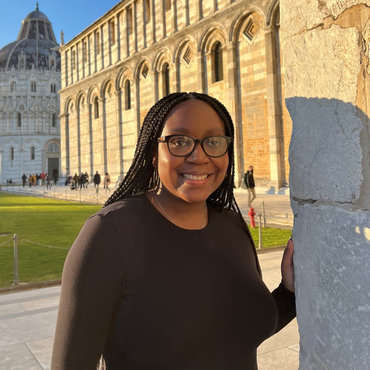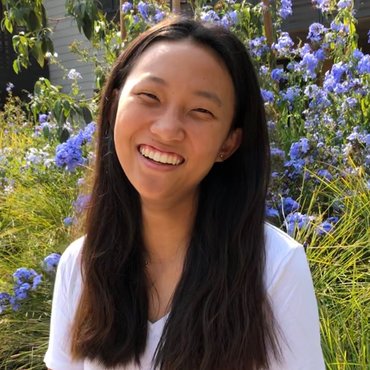
Leya Elias, '21
Redesigning justice: Transforming housing courts to housing centers
Only at Stanford could I take a class that allowed me to use legal design to create and test innovative solutions to a pressing challenge in my hometown: homelessness.
In the summer of 2019, I interned with the Public Rights Project, where I learned about the under-enforcement of consumer protection laws and the cracks within the civil justice system. After leaving my internship, I craved an opportunity that would teach me more about the civil court system, while also allowing me to work alongside community members to make improvements where needed. Luckily, I found a Cardinal Course called LAW806Y: Justice by Design: Eviction and Debt Collection. This course gave me the opportunity to explore my interests in civil courts and economic justice through a legal justice lens and design-thinking practice.
Through the class, I got to work alongside a community partner, the Judicial Council of California, and spend time learning from people—community organizers, attorneys, court staff, policymakers, landlords, and tenants—who have all touched the eviction system, for better or for worse. One stark injustice that consistently came up in all of our interviews was the disparity in access to legal representation in the court system and how, as a result, many tenants face little chance at avoiding an eviction.
While the majority of tenants do not have access to attorneys, over 60 percent of those who do are able to successfully avoid evictions. Access to legal representation is a huge unmet need for populations most at risk for homelessness. In addition to the inaccessibility of civil legal representation, tenants experiencing eviction are not only at high risk for homelessness, but are also missing a centralized support system dedicated to their success and well-being.
Since 2018, homelessness has increased 17 percent and 43 percent in San Francisco and Alameda, respectively. Witnessing the changes in my own city, I became interested in how the court could serve as the center of preventative support systems for not only those experiencing evictions, but those at risk for homelessness. Through the course, I had the opportunity to work on a facilitated holistic social services and legal aid program based in courthouses that offers resources such as rental assistance, skills training, and relocation programs.
As I work on testing my prototype alongside community partners and the Judicial Council of California, I am motivated by the potential for this program to decrease the rampant displacement across Bay Area communities. As a new family member or friend experiences eviction, displacement, or homelessness, the work I am doing in this class becomes even more pertinent and leaves me feeling honored to be able to think about how I can help.
Before the class, I saw becoming a practicing attorney as my only path toward mitigating the inaccessibility of legal representation. However, the course's application of design-thinking to legal systems has equipped me with an innovative toolbox with which to approach systematic legal issues as an attorney. As I look forward to my senior year, I am excited to take this new experience of social justice-oriented design-thinking to my work in and out of the classroom. I am empowered not only to become an attorney, but to become an attorney capable of redesigning our country’s legal system into one that works for our most at-risk communities.


